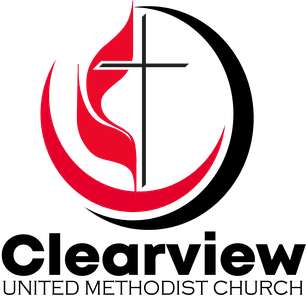
Making Spirits Bright: An Advent of Unexpected Surprises
“Making Spirits Bright” is a festive, joyful, and surprise-filled Advent and Christmas series that highlights how God continually shows up in ways we do not expect. From fiery furnaces to dancing bones, overflowing feasts to the Word made flesh, Advent has been a story of holy surprises. This series captures the beauty, humor, and delight of Christmas while pointing us toward the Savior who brings light into every corner of our lives.
Nov 30 — Unexpected Hope: When God Shows Up in the Flames
Hope isn’t found by escaping the heat of life—it’s found because God steps into the fire with us. Advent begins with holy confidence that Christ meets us in our hardest, hottest moments.
Key Points
- The furnace represents overwhelming seasons—stress, pressure, expectations.
- God shows up in the flames with Shadrach, Meshach, and Abednego.
- Hope is not fragile; it is presence, strength, and resilience.
- Advent hope comes not through ideal circumstances but through God’s nearness.
Take-Home
Where is God stepping into your fire this Advent season?
Dec 7 — Unexpected Peace: When Bones Start Dancing
God’s peace is not passive or quiet—it is reviving, restoring, and resurrecting. Peace is the Spirit breathing life into what we thought was beyond hope.
Key Points
- Ezekiel sees a valley of dry bones—the lowest point imaginable.
- God asks, “Can these bones live?” Peace begins with holy imagination.
- The rattling and reassembling show peace at work.
- God’s peace breathes life, order, restoration, and renewal.
Take-Home
Where do you need God’s peace to breathe again?
Dec 14 - Unexpected Joy: Free Refills at God’s Table
Joy isn’t something we manufacture—it’s something God pours out freely and abundantly. Advent joy is a feast, a celebration, a gift.
Key Points
- God invites everyone to the table of abundance.
- "Come, buy without money”—joy is not earned.
- God’s Word brings fruitfulness and fulfillment.
- Creation joins in the celebration—mountains singing, trees clapping.
Take-Home
Where can you receive or share joy this week?
Dec 21 - Unexpected Love: God Wrapped in Skin
The incarnation is the ultimate unexpected gift—God taking on flesh and showing up right in the middle of our humanity. Love becomes tangible, embodied, and real.
Key Points
- Christ existed before creation—love is older than time.
- The light shines in the darkness, and the darkness cannot overcome it.
- God chooses incarnation—love with skin on.
- Jesus moves into the neighborhood and reveals God’s heart.
Take-Home
Where is God inviting you to embody love this week?
Dec 24 - The Most Unexpected Christmas
God’s ultimate surprise arrives: the Savior born in the most unexpected way and place. Christmas Eve celebrates the holy shock of God’s arrival—full of joy, hope, and the light that changes everything.
Key Points
- The messy, chaotic setting of Jesus’ birth mirrors our own holiday chaos.
- Shepherds receive the news first—God chooses the overlooked.
- The angels proclaim joy for all people.
- Jesus is the greatest unexpected gift—God with us in person.
Take-Home
Expect God in unexpected places.
Dec 28 - Unexpected Testimony: When the Light Points Us Forward
Christmas continues beyond the manger—God’s light keeps shining, and now we become witnesses to it. John the Baptist shows what it looks like to point others toward the Light.
Key Points
- John the Baptist understands who he is—and who he’s not.
- “I am not the light” models humility in a self-centered world.
- John boldly proclaims, “Look, the Lamb of God!”
- Christmas doesn’t end; it unfolds into mission.
- We carry the light of Christ into the new year.
Take-Home
How will you reflect Christ’s light as you enter the new year?
